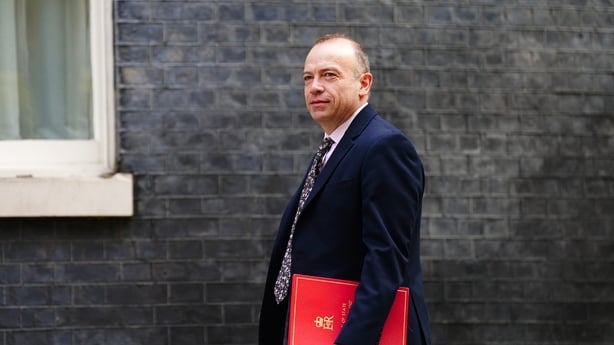Four more families have begun legal challenges to the UK's controversial legacy plans, which have come into law, bringing the total number of cases lodged at Belfast's High Court to 15.
They include the widow of a man shot dead by loyalists in 1997; a man who survived a loyalist gun attack in Co Down in 1992; the daughter of a man injured in a loyalist atrocity the same year, and the widow of a man shot dead by the British Army in 1987.
They are being supported by Amnesty International.
The UK government's legislation took effect after receiving royal assent last night, which is a formality at the end of the legislative process.
The bill effectively ended its Westminster progress several weeks ago and will close all legal avenues for families including criminal actions, civil actions and inquests.
All Troubles cases will be passed to a new body - the Independent Commission for Reconciliation and Information Recovery.
Killers will be offered immunity in return for providing information about murders.
Families will then be offered a report into the circumstances of their loved ones' deaths.
One of the latest legal challenges is being taken by Martina Dillion whose husband Seamus was shot and killed in 1997.
The family has an inquest pending and fears it will be denied by the new law.
Ms Dillon said she would fight the law in her husband's memory.
Another case is being brought by John McEvoy who was injured in a gun attack near Castlewellan, Co Down in 1992 in which another man was murdered.
He said he still lives with the legacy every day.
The third case involves Brigid Hughes' husband Anthony, a civilian who shot dead by the British Army at Loughgall, Co Armagh in 1987 when he and his brother drove into an SAS ambush in which eight IRA members also died.
In 2014, the UK Ministry of Defence issued an apology to the family. A fresh inquest has been ordered into his case.
The fourth litigant is Lynda McManus who's father James was badly injured in the attack on Sean Graham Bookies on Belfast's Ormeau Road in 1992. She is taking a civil claim for damages.

Northern Secretary Chris Heaton-Harris said he recognised that "getting to this juncture has been a hugely difficult task".
"The legislation contains finely balanced political and moral choices," he added.
The bill had been roundly opposed by all sides in Northern Ireland, including victims' groups and politicians.
The Irish Government is also considering taking UK authorities to the European Court of Human Rights.
Any case would centre on whether the law is compliant with the European Convention on Human Rights, to which the UK is a signatory.
"The UK government blatantly shunned victims' rights and pushed it through a law only it wanted. This heinous Act of wrong must not stand; it is now over to the courts to right this historic wrong," said its spokesperson Gráinne Teggart.





